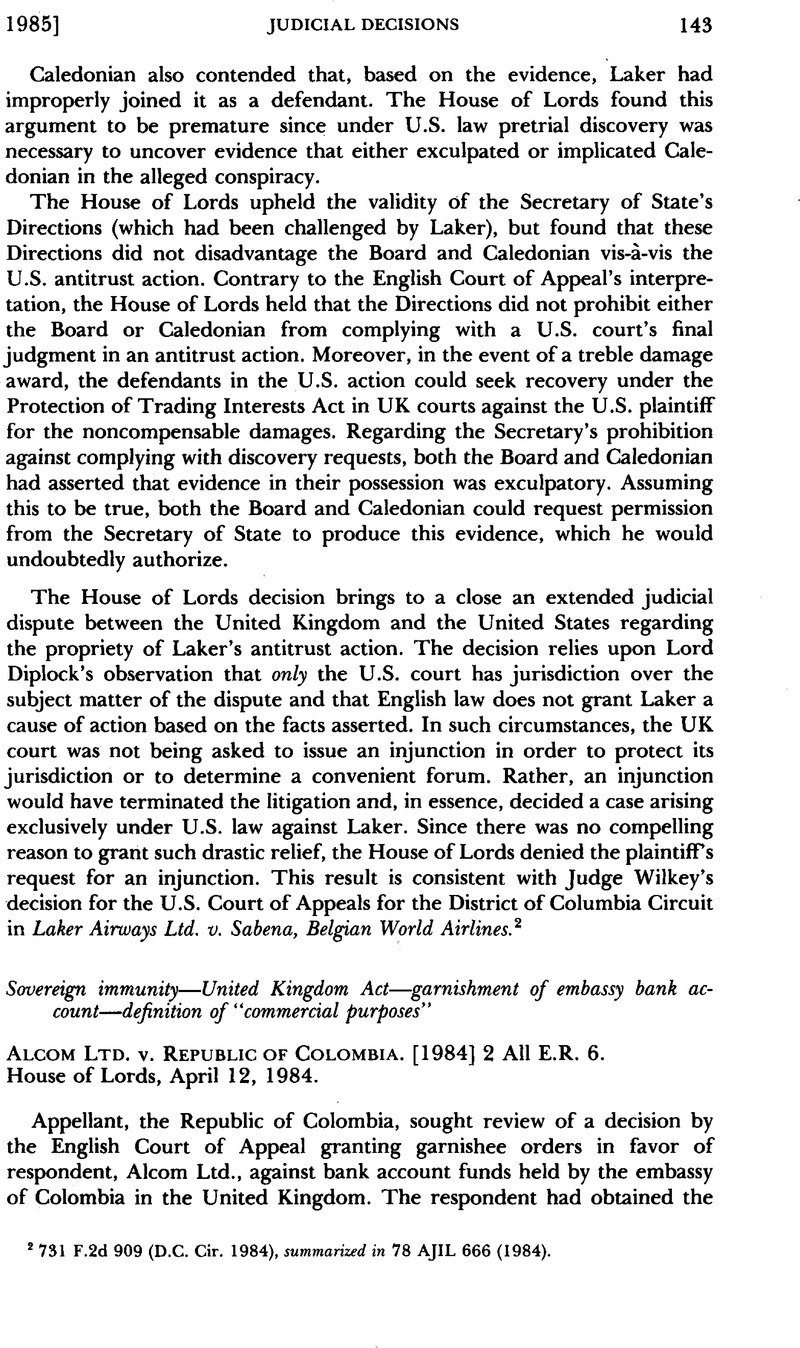No CrossRef data available.
Article contents
Alcom Ltd. v. Republic of Colombia
Published online by Cambridge University Press: 23 March 2017
Abstract

Keywords
- Type
- Judicial Decisions
- Information
- Copyright
- Copyright © American Society of International Law 1985
References
1 127 Sol. J. 784 (1983), summarized in 78 AJIL 451 (1984).
2 Summarized in 73 AJIL 305 (1979), corrected in id. at 703.
3 The State Immunity Act draws a distinction between the adjudicative jurisdiction and the enforcement jurisdiction of courts of law in the United Kingdom. Sections 2 to 11 deal with adjudicative jurisdiction and sections 13(2) to (6) and 14(3) and (4) deal with enforcement jurisdiction.
4 With respect to the immovable property exception, the House noted that the exception does not depend on whether or not the property is used for “commercial purposes.” The House also noted, however, that the special status of a state’s diplomatic mission (which consists, of course, of immovable property) is affirmatively recognized in section 16, which provides that the immovable property exception in section 6(1) “does not apply to proceedings concerning a State’s title to or its possession of property used for the purposes of a diplomatic mission.”
5 2 AUE.R. 6, 13.
6 Id.
7 See Birch Shipping Corp. v. Embassy of United Republic of Tanzania, 507 F.Supp. 311 (D.D.C. 1980), summarized in 75 AJIL 373 (1981). In Birch—in contrast to Alcorn—the foreign sovereign had waived its immunity and had admitted that the embassy’s bank account was used not only for governmental purposes but also for limited commercial purposes. The court in Birch, applying the Foreign Sovereign Immunities Act of 1976 (28 U.S.C. §§1330, 1602–1611 (1982)), held that the judgment creditor could properly attach the foreign embassy’s bank account, despite the fact that the account was “not used solely for commercial activity.”


